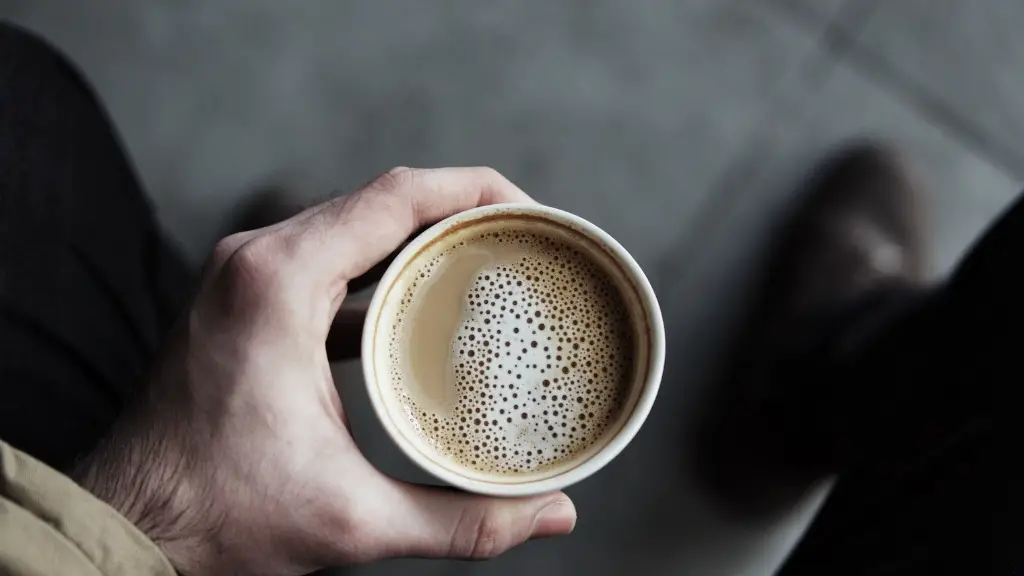Why do I feel uneasy after drinking coffee? Caffeine has always been known to give people more energy, mental clarity and focus. But why, after drinking coffee, do some people experience a feeling of uneasiness?
The feeling of unease is an individual response to caffeine, but there are several possible reasons why it might be felt after drinking a cup of coffee. One reason could be the the amount of caffeine people are consuming, as some people may be unfamiliar with the amount of caffeine found in a bold cup of coffee. Studies have shown that drinking more than 400 mg of caffeine in one day can cause extreme fatigue, jitteriness and anxiousness. Looking at the difference between brews, the typical 8-oz cup of coffee contains between 95 to 165 mg of caffeine while a 16-oz cup contains between 190 to 330 mg of caffeine.
The way coffee is prepared could also be another factor. People may be unfamiliar with the type of coffee, such as espresso, that many coffeehouses use to make popularized drinks such as macchiatos and lattes. The powerful flavor of espresso can sometimes be an overwhelming sensation for some, especially for those who don’t normally drink coffee. Additionally, the way coffee is brewed can also affect the taste – when coffee is brewed too long, the grounds can become overdosed and the coffee will taste more bitter and acidic, making it difficult to drink.
Research has also shown that some people might be sensitive to coffee because of their genes. It is known that some people have a gene that makes them metabolize caffeine slower, thus intensifying the effect that caffeine can have on the body. These people have reported extreme jitteriness, anxiety and restlessness after drinking coffee, more so than those with a different gene. This irritability can lead to the feeling of unease.
Lastly, the environment of where coffee is consumed could be potentially playing a role in the feeling of unease. Drinking coffee with friends or in a highly stimulating environment (i.e. a cafe) can cause people to feel overstimulated and therefore, uneasy. Adding uncomfortable social aspects to the already overwhelming feeling of caffeine can cause people to feel overwhelmed and disoriented. This feeling of unease is natural when it comes to consuming a large amount of caffeine in a short period.
Physiological Effects of Caffeine on the Body
Although the feeling of unease can be unpleasant, there are certain physiological effects of caffeine on the body that can be beneficial. Caffeine has the ability to improve performance and alertness, as it is known to block the adenosine receptors in the brain, resulting in an immediate feeling of alertness and energy. Additionally, caffeine can improve physical performance and coordination, as it has been used to test the effects of caffeine on athletic performance. Studies have found that people who consume caffeine before working out can improve their endurance and work out for a longer period of time with reduced fatigue.
Research has also suggested that regular caffeine consumption can improve mental performance by increasing blood flow to the brain and helping to protect nerve cells. This can result in an increase in brain function, such as greater focus and better decision-making. Furthermore, caffeine has the potential to improve memory and reaction time.
Before drinking too much coffee, however, it is important to understand the effects that caffeine can have on the body and the importance of moderation. Too much caffeine can have adverse effects on the body, such as insomnia, irritability and even cardiac arrest. Some researchers have found that caffeine can also reduce appetite, leading to overeating and weight gain.
Dietary Tips for Avoiding Unease
There are several dietary tips that can be taken to avoid the feeling of unease after drinking coffee. The most important thing to do is to be mindful of how much caffeine you are consuming – typically, the recommended amount of caffeine for an adult is no more than 400mg per day (roughly four cups of coffee).
When it comes to coffee, it is important to be mindful of where and how it is sourced, as it can make a difference in how your body responds to it. Some coffee contains pesticides and other possible contaminants, so it is important to purchase organic, fair trade coffee to ensure a healthier cup. Additionally, it is important to look for coffee with higher caffeine content.
If you find yourself feeling uneasy after drinking coffee, it is important to know that the feeling is natural and that it can be avoided. Taking the time to understand the way coffee affects the body and making changes to the way it is consumed can help to avoid the feeling of unease.
Alternative Sources of Caffeine
Although coffee is one of the most popular sources of caffeine, it is not the only one. There are many alternative sources of caffeine that can be taken to give people the same energy, mental clarity and focus.
Tea is a great source of caffeine and can be just as good as coffee. Tea is a natural source of caffeine, and there are many types available including green, black and herbal teas. Additionally, there are many different flavors and variations of tea that can make it a more enjoyable experience.
Another alternative to coffee is caffeine supplements. Caffeine pills and powders can be taken to give people the same effect that coffee does, but with less of an impact on the digestive system. Supplements can also be taken to help with focus and concentration and are a great way to get an extra boost of energy.
Lastly, energy drinks are also a great way to get a quick boost of energy. Energy drinks typically contain large amounts of sugar and caffeine, so it is important to be mindful of how much is consumed. Even though energy drinks are marketed as being “healthy,” it is important to remember that they can have adverse effects on your health if consumed in large amounts.
The Benefits of Regular Caffeine Consumption
Although drinking too much coffee can have adverse effects, moderate and regular coffee consumption can have health benefits. Drinking coffee regularly can improve mental function, physical performance, and even help to reduce the risk of certain diseases.
Coffee drinkers are less likely to suffer from mental decline associated with aging, as it has been found to have protective effects on the neurons in the brain. Additionally, studies have found that drinking 4-5 cups of coffee per day can result in reduced risk of type 2 diabetes and even protect against liver damage associated with alcohol consumption.
Furthermore, drinking coffee regularly can reduce the risk of certain cancers, such as prostate and liver cancer. Coffee is also a great source of antioxidants and can help to protect the body from oxidative damage caused by free radicals. Additionally, coffee can reduce inflammation and protect against certain neurological diseases, such as Parkinson’s and Alzheimer’s.
When used in moderation, the health benefits of drinking coffee far outweigh the risks. Taking the time to understand the effects that coffee can have on the body and ensuring that it is consumed in moderation can help to keep the body healthy and free from the feeling of unease.
Conclusion
In conclusion, the feeling of unease after drinking coffee can be felt by many people. Whether it is due to the amount of caffeine consumed or the type of coffee being drunk, the feeling of unease can be an unpleasant experience. Luckily, there are many dietary tips and alternative sources of caffeine that can be used to avoid the feeling of unease. Drinking coffee moderately and understanding the effects that it can have on the body can help to prevent the feeling of unease.





